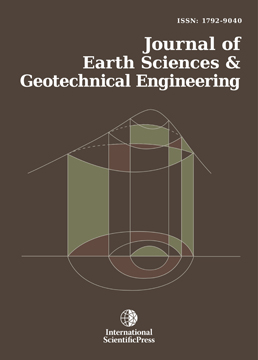Journal of Earth Sciences and Geotechnical Engineering
Dam Safety: Technical Problems of Aging Embankment Dams
-
 [ Download ]
[ Download ]
- Times downloaded: 9680
Abstract
Embankment dams undergo aging process due to the impact of different factors which can be attributed to geology of the site, design of the dam, materials selection and procedures followed in constructions. In the foundation the presence of faults or shearing planes, karst, compressible clayey material, soluble rock, and soft rock may establish conditions leading to high total settlement or differential settlements of the dam and its cracking. Deficient and deteriorating seepage control measures such as grout curtains or diaphragms enhance seepage flow leading to internal erosion and piping which endanger damsí stability. Improper filling materials used such as dispersive clays and gap graded granular material show their bad influence after long time by creating conditions inducive to internal erosion and piping. Use of improperly designed and placed filter zones and drainage blankets can end in clogging of such filters and drainage blankets leading to the rise of the phreatic surface level and increasing uplift causing again conditions of internal erosion and piping and undermine stability. This work attempts to give an overview of these conditions and cite many case studies of rehabilitation works carried out in dams after long years of service. The conclusion reached is that rehabilitation works if done early when problems are discovered play well to elongate the service life of dams, but normally they require large investments. Sooner or later owners of such old dams will come to realize that more rehabilitation works, neither technically nor economically, are feasible and that more of such works are not possible. In which case they will come think seriously of decommission such expired dams.
Keywords: Embankment Dams, Faults Karst, Compressible Clay, Soluble Rock, Soft Rock, Differential Settlement, Grout Curtains, Diaphragms, Internal Erosion, Piping, Dispersive Clays, Gap Grading, Filters, Drainage Blanket, Uplift.
